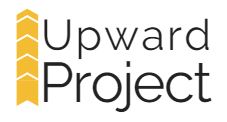[fruitful_tabs type=”default” width=”100%” fit=”false”]
[fruitful_tab title=”Phase 1″] We first began collecting data with respect to first-year students in their first semester of college at a single small, private comprehensive university with a liberal arts mission (in fall 2012). We collected survey data from the entering first-year cohort (1,256 students surveyed, n=920).
We collected additional data from 451 participating students enrolled in the first-year writing course (ENG 1103). Much of our analysis to date has focused on a random sample of 60 of these students, 35 of which provide the most complete data.
[/fruitful_tab]
[fruitful_tab title=”Phase 2″]In late fall 2015 and early spring 2016, we collected follow up survey data from students surveyed earlier, when most of these students would be seniors (673 students surveyed, n=160).
We also contacted all of the students who provided the most complete data from Phase 1 and who remained at the university.
Three of these students agreed to further intensive data collection and are the focus of our longitudinal case studies. All three students are traditional age undergraduates who were in their eighth semester at the time of data collection and nearing graduation, either later that academic or calendar year.
 John is from North Carolina. He is a Business Administration major with minors in Finance and Economics. What stands out in his college experience is the separation between research and writing in his major: he uses specialized software and databases to complete projects in finance and economics but sees that calculation as the “research.” Research is very discipline-specific for him: economics is driven by scholarly opinion but finance is quantitative. He regrets his early declaration of Business because it wasn’t in-depth enough for him, and he perceives that he learned more from his Economics and Finance classes. Aside from one pivotal Econometrics paper, John completed most of his writing assignments in general education courses. In addition to the Economics project, John discusses research and writing projects completed for a general education literature course as well as for a management course within his major (a group-based case study).
John is from North Carolina. He is a Business Administration major with minors in Finance and Economics. What stands out in his college experience is the separation between research and writing in his major: he uses specialized software and databases to complete projects in finance and economics but sees that calculation as the “research.” Research is very discipline-specific for him: economics is driven by scholarly opinion but finance is quantitative. He regrets his early declaration of Business because it wasn’t in-depth enough for him, and he perceives that he learned more from his Economics and Finance classes. Aside from one pivotal Econometrics paper, John completed most of his writing assignments in general education courses. In addition to the Economics project, John discusses research and writing projects completed for a general education literature course as well as for a management course within his major (a group-based case study).
 Alyssa is a Criminal Justice and Business Administration double major, originally from New Jersey. Research, for her, involves gathering as much information as she can on a topic “to get the most accurate information and to get the best interpretation of your information.” She believes it is not a linear process. Engaging with sources involves reading sources in-depth and understanding them, which makes it easier to apply them to the topic you are writing about. When she encounters sources that disagree with her point, she recognizes that she has to acknowledge those sources and think about them, rather than immediately disregard them.
Alyssa is a Criminal Justice and Business Administration double major, originally from New Jersey. Research, for her, involves gathering as much information as she can on a topic “to get the most accurate information and to get the best interpretation of your information.” She believes it is not a linear process. Engaging with sources involves reading sources in-depth and understanding them, which makes it easier to apply them to the topic you are writing about. When she encounters sources that disagree with her point, she recognizes that she has to acknowledge those sources and think about them, rather than immediately disregard them.
Alyssa’s understanding of research is largely based on her experience in the research methods course for her major, Criminal Justice. For this course, she had to write a research proposal for a study that she might conduct in that field. The professor, content, and her chosen research topic were significant influences for her in the research methods course. Because her paper involved creating a research proposal, she also considers the limitations of research within criminal justice (such as accuracy in regards to interviews) as well as research ethics for particular populations. Other projects discussed to a lesser degree include those completed for an online general education literature course (through a community college back home) and for a management course within her major.
 Emma is an Elementary Education major who aspired to work in a developing country. Emma has an international upbringing: her mother is Jamaican. Emma lives in California for the first five years of her life, in Spain for the next seven years, and then in England. She has both a U.S. and a British passport, and she identifies fluidly with one nationality or the other (e.g., speaking with a British accent or not, depending on whom she is with).
Emma is an Elementary Education major who aspired to work in a developing country. Emma has an international upbringing: her mother is Jamaican. Emma lives in California for the first five years of her life, in Spain for the next seven years, and then in England. She has both a U.S. and a British passport, and she identifies fluidly with one nationality or the other (e.g., speaking with a British accent or not, depending on whom she is with).
In the second semester of her sophomore year, Emma studies abroad at Stellenbosch University in South Africa, where she takes a course on women and gender. The course is pivotal to Emma in its use of people as sources (“the most fascinating, unusual project I’ve ever done”). She also takes an English course while studying abroad that counts toward her general education requirement. A credit shy of fulfilling the requirement, she takes an independent study culminating in a paper with a professor at her home university. The project she chooses to characterize research and writing in her major is a 10-page brochure with extensive references on the topic of recycling, an assignment associated with certain state-directed learning outcomes for Education majors.
Emma understands research in several, sometimes contradictory ways that seem to depend on the curricular context in which she is conducting research. For Emma, “research” is a construct composed of an understanding of what sources are, specifically their bases for authority. What grounds a source’s authority determines how a researcher is able to interact with a source–e.g., whether and how the source can be subject to questioning, how it might be put to use, etc. The researcher’s interaction with sources in turn defines what nature of claim can be made, or even whether a claim of one’s own can be made.
[/fruitful_tab]
[fruitful_tab title=”Phase 3″]From fall 2016 on, we collected data from seven faculty involved with the three students’ curricular research experiences. We had prompted each student to provide us with information and documentation regarding the following:
(1) a required general education literature course,
(2) a project within their major (e.g., a capstone), and
(3) other coursework significant to the student.
These contexts and projects guided which faculty to whom we reached out.
| Gen Ed Literature | Major Project | Other Coursework | |
| John | Gen Ed Literature Professor | Strategic Management Professor | Econometrics Professor |
| Alyssa | n/a | Research Methods Professor (Criminal Justice) | Business Management & Organization Behavior Professor |
| Emma | Gen Ed Literature Professor | Principles of Integrated Instruction Professor (Education) | n/a |
[/fruitful_tab]
[/fruitful_tabs]
[fruitful_ibox_row]
[fruitful_ibox column=”ffs-two-one” title=”Previous Section”]About The Project[/fruitful_ibox]
[fruitful_ibox column=”ffs-two-one” title=”Next Section” last=”true”]Data Collection Tools[/fruitful_ibox][/fruitful_ibox_row]
